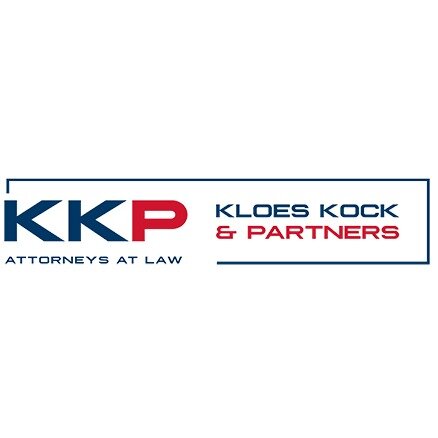Best Nonprofit & Charitable Organizations Lawyers in Aruba
Share your needs with us, get contacted by law firms.
Free. Takes 2 min.
Or refine your search by selecting a city:
List of the best lawyers in Aruba
About Nonprofit & Charitable Organizations Law in Aruba
Nonprofit and charitable organizations play a significant role in Aruba's community by addressing social, cultural, educational, and environmental needs. The legal framework governing these entities is designed to facilitate their operations while ensuring transparency, accountability, and adherence to the law. Nonprofits in Aruba can be established as foundations or associations, with their operations guided by principles set forth in local legislation.
Why You May Need a Lawyer
Several common situations may necessitate seeking legal advice when dealing with nonprofit and charitable organizations in Aruba:
- Establishing a new nonprofit entity and ensuring compliance with registration requirements.
- Drafting or reviewing organizational documents such as bylaws or articles of incorporation.
- Navigating employment law for hiring staff and volunteers.
- Ensuring proper tax compliance and obtaining tax-exempt status.
- Handling conflicts within the organization or with third parties.
- Assisting with legal compliance in fundraising activities and grant applications.
- Advising on governance and board responsibilities.
Local Laws Overview
Nonprofit and charitable organizations in Aruba are subject to specific legal requirements, including:
- Registration: A formal registration process is required to legally operate. This includes submitting foundational documents to relevant governmental authorities.
- Governance: There are regulations regarding the composition and duties of the board of directors or trustees, ensuring accountability and strategic leadership.
- Financial Management: Financial transparency is mandatory, with organizations expected to maintain accurate records and, in some cases, undergo audits.
- Tax Regulations: There are provisions for tax exemptions, contingent upon meeting certain criteria and maintaining compliance with reporting requirements.
- Fundraising Rules: Specific guidelines govern fundraising practices to protect donors and ensure ethical solicitation of contributions.
Frequently Asked Questions
How do I start a nonprofit organization in Aruba?
You need to define your mission, create a legal structure by drafting foundational documents, and register with the appropriate governmental bodies.
What legal structure can a nonprofit take in Aruba?
In Aruba, nonprofits can be organized as foundations or associations, each with distinctive legal characteristics and requirements.
Are nonprofits in Aruba taxed?
Nonprofits may qualify for tax-exempt status, but they must comply with certain legal conditions and reporting requirements to maintain this status.
What are the requirements for maintaining good legal standing?
Organizations must adhere to financial reporting requirements, ethical governance practices, and compliance with relevant tax laws.
Can a nonprofit in Aruba engage in commercial activities?
Yes, but any profits generated must be reinvested into the organization's mission, and activities must align with charitable purposes.
What are the fundraising regulations for nonprofits?
Nonprofits must conduct fundraising activities transparently, ensuring to protect donor information and utilizing funds as promised.
Do nonprofits need to file annual reports?
Yes, nonprofits are generally required to file annual financial statements and reports as part of their accountability obligations.
How are conflicts within the organization resolved?
Conflicts are typically managed internally using predetermined conflict resolution strategies, but legal intervention may be required for serious disputes.
What steps should be taken to dissolve a nonprofit?
The dissolution process involves ceasing operations, settling debts, distributing remaining assets according to legal guidelines, and notifying government authorities.
How can a nonprofit maintain compliance with employment laws?
Organizations should stay informed about local labor regulations, ensure fair treatment of staff and volunteers, and comply with employment tax obligations.
Additional Resources
For more guidance, consult the following resources:
- Department of Economic Affairs: Provides information on business registration, including nonprofits.
- Tax Authorities of Aruba: Offers detailed guidance on obtaining and maintaining tax-exempt status.
- Chamber of Commerce Aruba: A resource for business development, including the nonprofit sector.
- Local legal firms specializing in Nonprofit Law: Can provide personalized legal advice.
Next Steps
If you need legal assistance with nonprofit and charitable organizations in Aruba, consider taking the following steps:
- Identify specific legal needs or challenges your organization is facing.
- Compile any relevant documents or information that may be required for legal consultation.
- Research and contact local attorneys or law firms that specialize in nonprofit law.
- Schedule a consultation to discuss your situation and obtain tailored legal advice.
- Follow through on legal recommendations to ensure compliance and address any issues effectively.
Lawzana helps you find the best lawyers and law firms in Aruba through a curated and pre-screened list of qualified legal professionals. Our platform offers rankings and detailed profiles of attorneys and law firms, allowing you to compare based on practice areas, including Nonprofit & Charitable Organizations, experience, and client feedback.
Each profile includes a description of the firm's areas of practice, client reviews, team members and partners, year of establishment, spoken languages, office locations, contact information, social media presence, and any published articles or resources. Most firms on our platform speak English and are experienced in both local and international legal matters.
Get a quote from top-rated law firms in Aruba — quickly, securely, and without unnecessary hassle.
Disclaimer:
The information provided on this page is for general informational purposes only and does not constitute legal advice. While we strive to ensure the accuracy and relevance of the content, legal information may change over time, and interpretations of the law can vary. You should always consult with a qualified legal professional for advice specific to your situation.
We disclaim all liability for actions taken or not taken based on the content of this page. If you believe any information is incorrect or outdated, please contact us, and we will review and update it where appropriate.
Browse nonprofit & charitable organizations law firms by city in Aruba
Refine your search by selecting a city.











